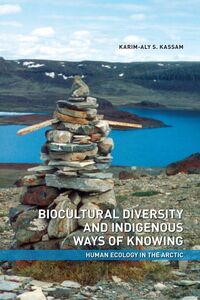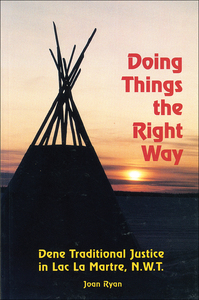
Dramatic challenges face human civilization everywhere. Relations between human beings and their environment are in peril, with mounting threats to both biological diversity of life on earth and cultural diversity of human communities. The peoples of the Circumpolar Arctic are at the forefront of these challenges and lead the way in seeking meaningful responses.
In Biocultural Diversity and Indigenous Ways of Knowing, Karim–Aly Kassam positions the Arctic and sub–Arctic as a homeland rather than simply as a frontier for resource exploitation. Kassam aims to empirically and theoretically illustrate the synthesis between the cultural and the biological, using human ecology as a conceptual and analytical lens. Drawing on research carried out in partnership with indigenous northern communities, three case studies illustrate that subsistence hunting and gathering are not relics of an earlier era but rather remain essential to both cultural diversity and to human survival.
This book deals with contemporary issues such as climate change, Indigenous knowledge, and the impact of natural resource extraction. It is a narrative of community–based research, in the service of the communities for the benefit of the communities. It provides resource–based industry, policy makers, and students with an alternative way of engaging indigenous communities and transforming our perspective on conservation of ecological and cultural diversity.
Book details
-
Publisher
-
Language
English -
Publication date
-
Page count
288 -
Theme
-
Series






